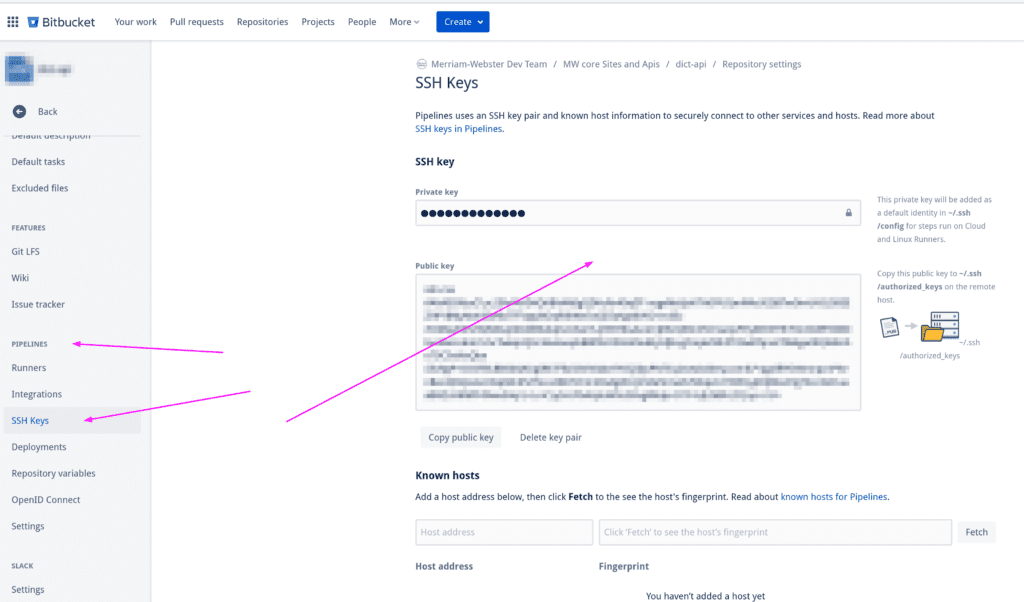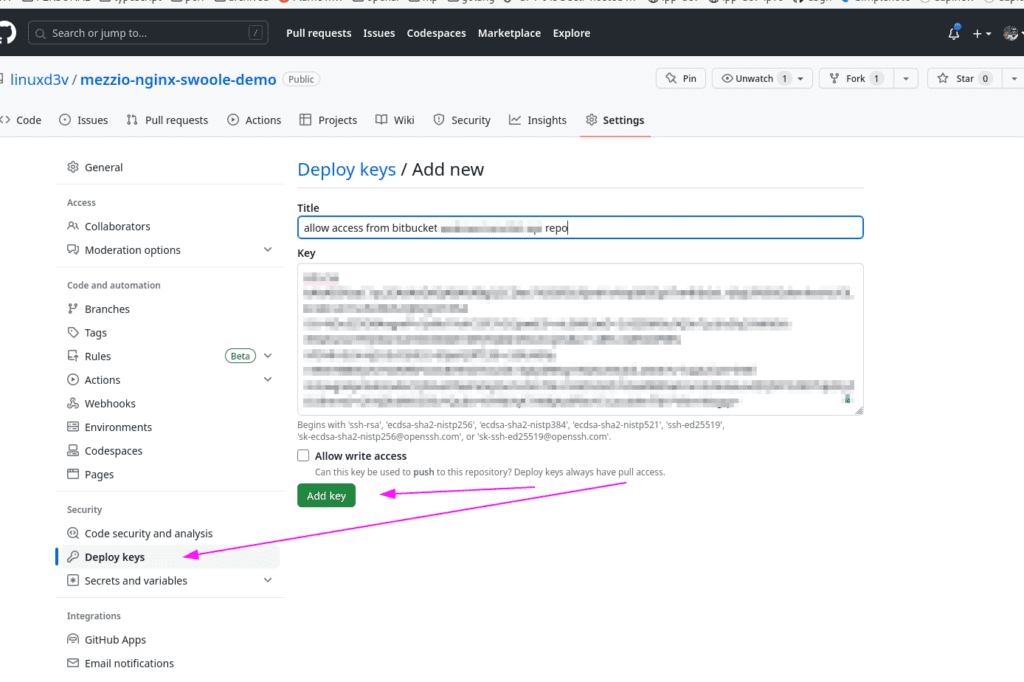If you are like me and part of your company is using Bitbucket while the other part is using GitHub -> you might find this post helpful. If you need to git pull a repository from GitHub into one of your bitbucket pipeline steps – read on.
Add ssh key into the bitbucket pipeline:
Go into your bitbucket pipelines settings and add an ssh key. Either click and generate a new one or use an existing one if you have one:

Note: you don’t need to add github.com to known hosts. It’s already added under the hood by default in Bitbucket.
Add public ssh key into GitHub repository
Copy the public ssh key you added in the previous step into the GitHub repository you want to pull into your bitbucket pipeline.
You can add the ssh key under the settings => deploy keys:

Example bitbucket-pipelines.yml that git pull(s) GitHub repository:
After the above prep work is complete, you can pull the GitHub repository like this for example in your bitbucket pipeline. Here im using the python alpine image, but code would be similar in any other image:
definitions:
yaml-anchors:
- &integration-test
name: Api integration test
image: python:3.11-alpine
clone:
enabled: false
script:
# Install git and ssh
- apk update && apk add git openssh-client
# git clone the repo from github:
- git clone --verbose git@github.com:linuxd3v/mezzio-nginx-swoole-demo.git
- CLONE_DIR=`pwd`/mezzio-nginx-swoole-demo
# Do what you please
- cd ${CLONE_DIR} && ls -alh
pipelines:
# Pipelines that can only be triggered manually
#============================================================================
custom:
api-integration-test:
- step: *integration-test
Thank you for reading 👍
